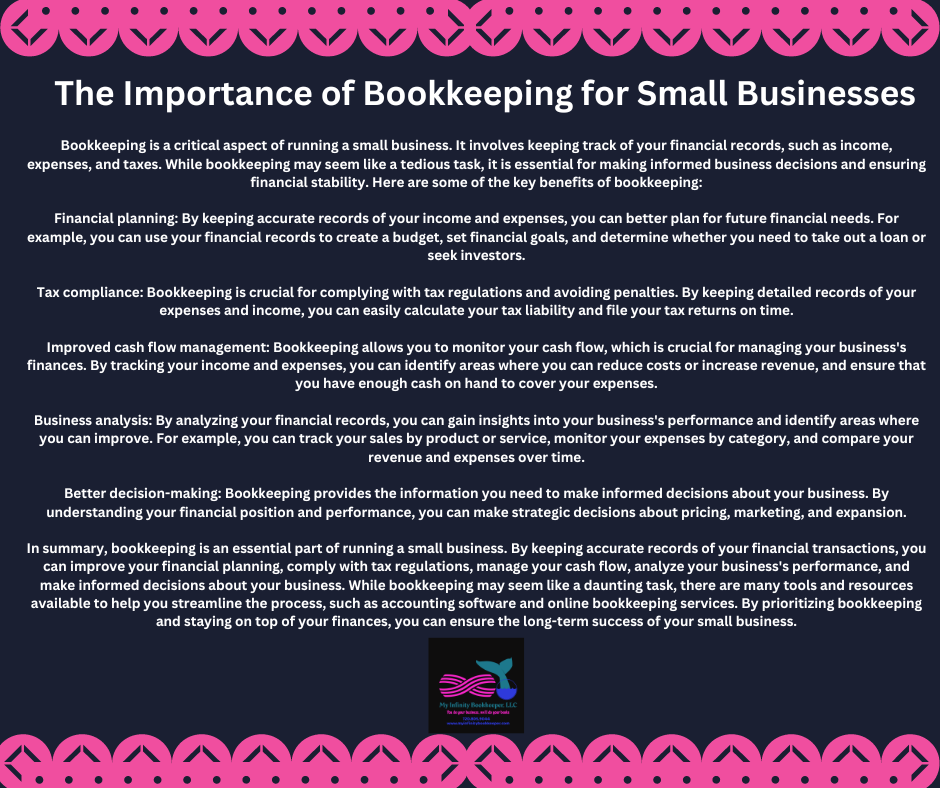Welcome Spring!

Don’t forget your bookkeeping as part of your spring cleaning! Need some help? Schedule a free discovery call – I’ve got your back!
The Importance of Bookkeeping for Small Businesses
Bookkeeping is a critical aspect of running a small business. It involves keeping track of your financial records, such as income, expenses, and taxes. While bookkeeping may seem like a tedious task, it is essential for making informed business decisions and ensuring financial stability. Here are some of the key benefits of bookkeeping:
- Financial planning: By keeping accurate records of your income and expenses, you can better plan for future financial needs. For example, you can use your financial records to create a budget, set financial goals, and determine whether you need to take out a loan or seek investors.
- Tax compliance: Bookkeeping is crucial for complying with tax regulations and avoiding penalties. By keeping detailed records of your expenses and income, you can easily calculate your tax liability and file your tax returns on time.
- Improved cash flow management: Bookkeeping allows you to monitor your cash flow, which is crucial for managing your business’s finances. By tracking your income and expenses, you can identify areas where you can reduce costs or increase revenue, and ensure that you have enough cash on hand to cover your expenses.
- Business analysis: By analyzing your financial records, you can gain insights into your business’s performance and identify areas where you can improve. For example, you can track your sales by product or service, monitor your expenses by category, and compare your revenue and expenses over time.
- Better decision-making: Bookkeeping provides the information you need to make informed decisions about your business. By understanding your financial position and performance, you can make strategic decisions about pricing, marketing, and expansion.
In summary, bookkeeping is an essential part of running a small business. By keeping accurate records of your financial transactions, you can improve your financial planning, comply with tax regulations, manage your cash flow, analyze your business’s performance, and make informed decisions about your business. While bookkeeping may seem like a daunting task, there are many tools and resources available to help you streamline the process, such as accounting software and online bookkeeping services. By prioritizing bookkeeping and staying on top of your finances, you can ensure the long-term success of your small business.
